Bosnia clear-up begins after Sarajevo and Tuzla protests
- Published
The BBC's Guy Delauney has been surveying the damage in the capital Sarajevo
Bosnia-Hercegovina has begun to clear up the wreckage left after some of the worst unrest for years.
Government buildings across the country were torched amid anger at the lack of jobs and a perceived inability of politicians to improve the situation.
Protests continued on Saturday, but on a smaller and more peaceful scale. Several senior regional officials are reported to have resigned.
Bosnia's security minister has called for an "anti-corruption tsunami".
Fahrudin Radoncic said the authorities must launch a major crackdown on corruption or "we will have a citizens' tsunami".
The unrest began in the northern town of Tuzla earlier in the week, with protests over the closure and sale of factories which had employed most of the local population.
The demonstrations quickly spread to other towns and cities, including Sarajevo, Mostar, Zenica and Bihac.
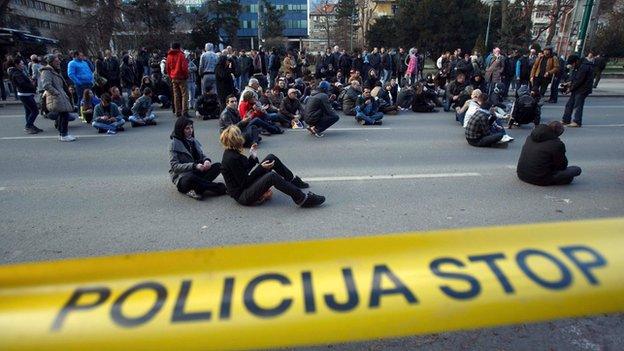
Protests continued on Saturday but on a much smaller and more peaceful scale. This group of protesters blocked traffic in Sarajevo.
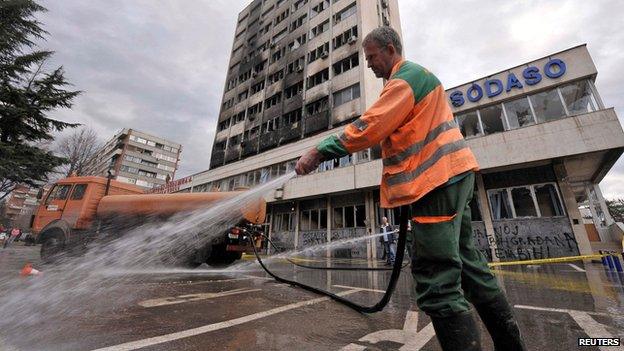
Residents joined workers in cleaning up after days of rioting in the northern town of Tuzla
'Trigger'
Mr Radoncic, who heads the Union for a Better Future party, told the BBC he understood people's concerns.
"What we have seen... is 17 years of extreme poverty and citizens feel they have been robbed," he said, adding that a number of politicians were currently under investigation for alleged corruption.
He singled out the SDP (Social Democrat Party) for failing to deliver on peoples' hopes for change when it won the 2010 elections.
Instead, he said, the SDP "has used the police as a force against citizens and this to me appears to have been the trigger for" the recent unrest.
He said progress was possible if politicians at every level of the country's complicated political set-up "understand that they need to change or leave".
A number of senior local officials - including the premiers of Tuzla and Zenica-Doboj cantons - resigned on Friday under pressure, local media report.
Hundreds of people have been injured in three days of protests. Police used rubber bullets and tear gas to quell the unrest in some places.
Blackened government buildings - scorched by the fires of the previous day - were a reminder of the recent unrest, the BBC's Balkans correspondent Guy De Launey reports from Sarajevo.
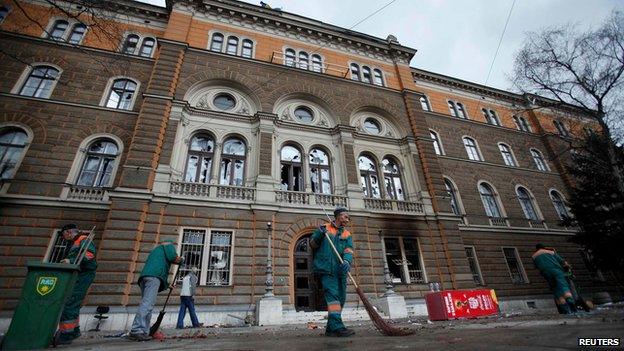
Meanwhile, a major clean-up has begun after government buildings in several cities were attacked.
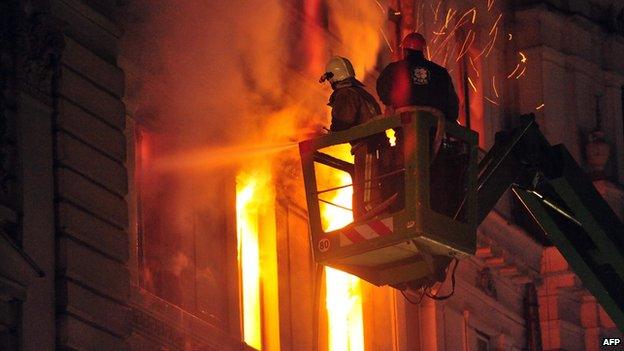
Many government buildings were set alight.
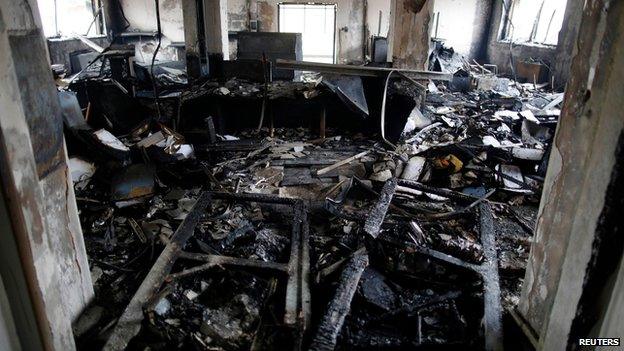
This is the burnt-out interior of a government building in the city of Mostar.
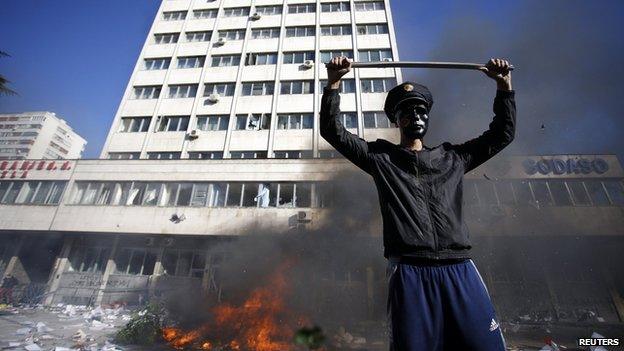
Protesters are angry at the high unemployment rate and the lack of action by politicians
Residents in Tuzla brought out their brooms to begin clearing the streets of debris and wreckage.
"I'm glad we did it," Sanela Fetic, who took part in both the protests and the clean-up, told Reuters news agency.
"Now we'll clean up this mess, like we'll clean up the politicians who made this happen."
People have been exasperated by the years of inertia and incompetence in Bosnia, our correspondent says.
About 40% of Bosnians are unemployed.
Bosnia-Hercegovina is made up of two separate entities: a Bosniak-Croat Federation of Bosnia and Hercegovina, and the Bosnian Serb Republic, or Republika Srpska, each with its own president, government, parliament, police and other bodies.
The complex administrative framework and deep divisions have led to political stagnation and vulnerability to corruption.
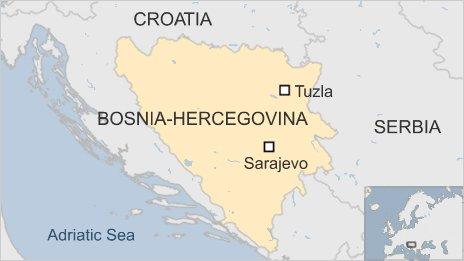
- Published7 February 2014
- Published7 February 2014
- Published7 February 2014